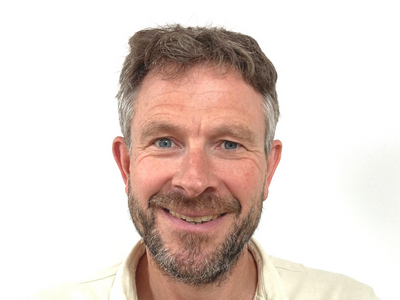Meet the newest member of our board, Mark Bullen, Managing Director at GB Electronics (UK) Ltd (GBE), an electronics design company and manufacturer based on three sites in Worthing, working across a range of sectors including healthcare, life sciences, consumer, power electronics, and cold-chain distribution.

Tell us about GB Electronics and your role there.
GBE is a family business, and I took over in 2003. We had five staff back then. I changed the focus of the company to make it design-led, so we are really getting under the skin of who our end customers are and designing specific products and tailored solutions. We’ve grown a lot in the last five years and now employ 59 people, so that approach has paid off. This has included working with several start-ups, acquiring our sub-contractor and recently starting a Software as a Service (SaaS) business.
Why have you joined the Coastal West Sussex Partnership?
We are in a place now as a company where we can add valuable input to the Coastal West Sussex Partnership, as a rapidly growing employer in the region. It makes sense to be giving something back and for our voice to be heard – and I’m keen to hear from others too.
I want GBE to be the premium produce and software design-led manufacturing company in the south of England. We need to be engaging with local businesses, councils and other partners to get there and we want to be part of the debate. Getting involved will help attract people to our company too.
What are your hopes and aspirations for the region?
I think there is a lot of potential for Coastal West Sussex to be a place people want to work as well as a place they want to live. Worthing is certainly on the up, however there are other towns which need some TLC. It can be difficult to attract people to work on the south coast but there are some great universities and rapidly improving facilities. If there were more companies which were attractive to graduates, then we’d be able to keep more talent in the area and graduates wouldn’t feel they have to go to places like London to work.
Tell us about the approach to skills at GB Electronics.
I think linking up with local colleges and universities is the best way to inspire young people to come and work for you, rather than simply relying on recruitment agencies. It’s important to make that connection early on. We’ve done a lot of apprenticeship schemes and have nearly completed our first-degree apprenticeships with the University of Chichester. We’ve also taken on a few recent graduates from the University of Brighton (making the most of their STEP-UP program).
I sit on the advisory board at the University of Chichester and we sponsor Worthing College too, where we have our own GBE lab. We go in to do talks with the students about the relevance of what they’re learning and where it could take them, trying to inspire them to use their electronics and science skills to build a career.
I’m also keen on putting current staff back through courses – for example if you’ve got someone who joined at 20 and didn’t go to university before as they didn’t know what they wanted to study then – I think it’s beneficial for them to upskill that way now.
What do you think are the biggest challenges for businesses in the region?
One of the biggest challenges I see is around commercial property. Where is a company like mine going to grow when we just don’t have the space? There is a lot of land sitting there waiting to be developed and empty buildings which landlords don’t want to sell as they want to lease them (or get change of use to residential), but we don’t want a leased building. I’m talking about 15,000 to 23,000 square feet. We don’t want to have to relocate as we have staff who are local to the area who have been with us for years. We should be knocking more of the old empty buildings down and building a new tech centre, for example, rather than another distribution warehouse or trade counter. This is an issue which we have more of a voice on as a member of the Partnership.
The road networks are another challenge – we do a lot of life science work near Portsmouth but the A27 can be very time consuming for our design team to travel on, not to mention delays with couriers; all having a negative impact on productivity. There is also a lot of talk and encouragement from councils on cycling to work but the infrastructure is just not there and it’s dangerous in some places. It needs proper planning and investment to realise the ambitions of this low-carbon travel initiative; at present it is just talk and still dangerous to cycle any distance on the A27 or A259.
